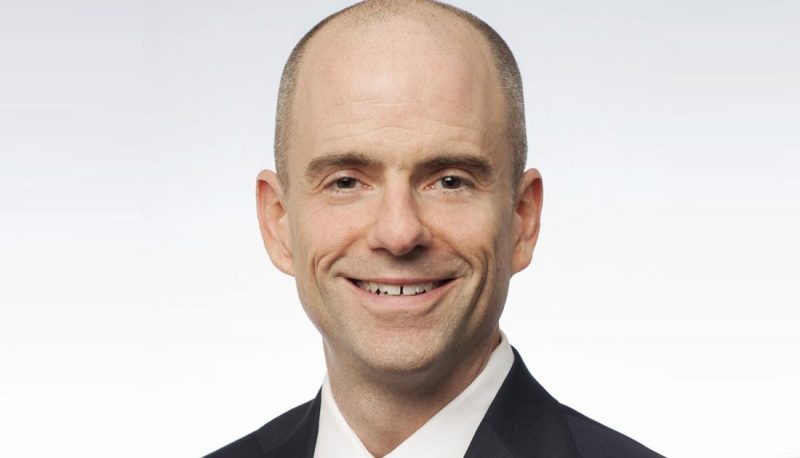“Confirmed Judges, Confirmed Fears” is a blog series documenting the harmful impact of President Trump’s judges on Americans’ rights and liberties. Cases in the series can be found by issue and by judge at this link.
Trump Eleventh Circuit judge Kevin Newsom reversed a trial judge and dismissed a lawsuit by an incarcerated transgender woman with gender dysphoria who challenged its refusal to provide comprehensive gender affirming medical care. The prison later changed its course, and although all three judges agreed that the prison’s initial refusal was problematic, Newsom wrote for a 2-1 majority that because the prison’s accommodation to allow the prisoner to resume her treatment occurred after she filed her lawsuit, most of the case was moot. Judge Charles Wilson strongly dissented. The March 2020 case is Keohane v. Florida Dept. of Corrections.
Reiyn Keohane first affirmed her gender identity during her preadolescent years. She was diagnosed with gender dysphoria at age 16 and had initiated hormone therapy about six weeks before she was arrested at 19 for attempted murder.
Because Florida houses incarcerated people based on the sex assigned at birth, Keohane was confined at a male prison. Over the next several years, prison officials repeatedly denied her requests to resume her hormone therapy, even though she had filed grievances that explained that without treatment, she considered “self-harm and suicide every day.” These denials were based on the state’s discriminatory “freeze-frame” policy, under which incarcerated people with gender dysphoria are “maintained only at the level of change that existed” at the time of their initial confinement, without consideration of their “current, individualized medical needs.” Officials also denied Keohane’s “social transitioning” requests to grow her hair longer, wear makeup, and otherwise “live consistently” with her “gender identity” to the extent possible. During this period, Keohane “made multiple attempts to self-harm,” including trying to kill herself several times.
After exhausting all administrative options to resume her treatment, Keohane filed suit in federal court, contending that the conduct of the Florida Department of Corrections (FDC) violated the Eighth Amendment because officials were acting with “deliberate indifference” to her “serious medical need.” Shortly after the suit was filed, the state abandoned its “freeze-frame” policy and referred Keohane to an endocrinologist, who immediately resumed her hormone therapy. However, the state denied her the ability to socially transition, maintaining that the permitted adjustments satisfied all medically necessary components of her treatment, and argued that most of the case should be dismissed as moot.
The district court rejected those claims, finding that the state could very well decide to reinstitute its former policies, and ruled for Keohane. The court entered a permanent injunction against the “freeze-frame” policy that it found was an unconstitutional “blanket ban on medically necessary care,” found that the state’s earlier denial of hormone therapy to Keohane violated the Constitution and resulted from “bigotry and ignorance,” and ordered that in addition to her hormone therapy, her request for “social transitioning” should also be granted as “medically necessary.” The state appealed.
All three appellate judges appeared to agree that there were serious problems with the state’s “freeze-frame” policy and its initial denial of hormone therapy. But writing for a 2-1 majority, Newsom nevertheless reversed the district court. He ruled that the state’s changes in policy after the lawsuit was filed did, in fact, render most of Keohane’s claims moot, and that because there was a difference of opinion among the witnesses on Keohane’s medical need for social transitioning, that claim should be denied as well.
Judge Charles Wilson vigorously dissented. He strongly disagreed with the reversal on the mootness issue, noting that the district court had made extensive factual findings that should not be reversed on appeal unless proven clearly erroneous. He pointed out that the record showed that the state’s change in policy appeared based on “desperation not deliberation,” and that the district court’s ruling that the state could well revert to its old ways was based on a “host of findings”:
- The timing of the FDC’s concessions was suspect.
- The FDC had no explanation for its delay.
- The FDC’s positions throughout the litigation were inconsistent.
- The FDC’s decision-making was a black box.
- The FDC’s prior practices were not accidental, but deliberate and historical.
- The FDC refused to promise that it would not reenact the freeze-frame policy.
- The FDC still was adamant that its practices were valid, even after it claimed to change its ways.
- The FDC delayed in providing Keohane’s hormone therapy, even after it agreed that she needs it.
- On at least one occasion, the FDC applied the repealed freeze-frame policy to bar hormone therapy for another individual with gender dysphoria.
Wilson also explained that Newsom was wrong to reverse the district court’s ruling on social transitioning. The lower court had considered all the evidence and found as a matter of fact that the prison had shown deliberate indifference to a serious medical need. In effect, he pointed out, the prison had a “categorical ban on social transitioning” and showed a “level of disregard that rises above mere negligence.” Under applicable precedent, since the district court finding was “well supported” by substantial evidence in the record, the result should have been that “we must affirm.” On both aspects of the case, Wilson concluded, Newsom’s opinion ignored the fundamental principle that appeals courts should defer to district court factual findings that are supported by the record, “not shake the magic 8-ball until it gives us a different result.”
Too often, transgender people in prison are not treated with basic decency and fairness, and routinely face discriminatory policies that deny them access to comprehensive medical care. Newsom’s reversal of the district court decision upholds such discrimination, and jeopardizes the safety and wellbeing other people in prison who need similar treatment. For now, Keohane can continue with her hormone therapy. But because of Newsom’s reversal, she will not receive other equally necessary accommodations.

